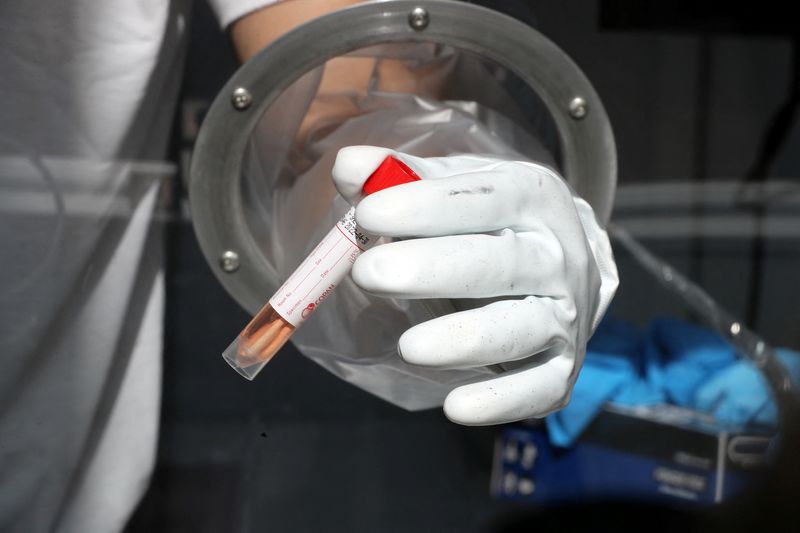By Maayan Lubell
JERUSALEM (Reuters) -Israel's Health Ministry on Monday instructed people self-testing for COVID-19 to swab their throat as well as their nose when using rapid antigen kits to increase the chances of detecting the Omicron variant.
The recommendation goes against the advice of the U.S. Food and Drug Administration (FDA), which has said manufacturers' instructions should still be followed and that incorrect use of throat swabs could pose a safety risk.
On Israeli Army Radio, Sharon Alroy-Preis, Israel's public health chief, said antigen - or lateral flow - tests, used widely in the country, are less sensitive than PCR tests in detecting illness.
"In order to increase their sensitivity we will from now on recommend swabbing the throat and the nose. It's not what the manufacturer instructs but we are instructing this," she said.
The ministry later issued guidelines which said a swab should be taken from the throat and then from one nostril.
"It has the potential to improve the reliability of the test," Salman Zarka, Israel's pandemic-response coordinator, told a news conference, adding that the ministry would release a video showing how to use the new method.
Zarka said the ministry had spoken with companies supplying the test kits before issuing the new recommendation.
Rhenium, one of the Israeli importers of antigen kits, said earlier the Health Ministry had not consulted with it before issuing the new guidelines and that the tests, not checked by the company for throat swabs, were intended for nasal swabs.
MORE THAN ONE TEST
With Omicron pushing daily infection cases to record highs, health officials have prioritised risk groups for PCR testing and trusted younger, vaccinated people to test at home if exposed to COVID-19. [L1N2TM11R]
Alroy-Preis said that when exposed to a carrier, people should take more than one test or wait three days after exposure before testing with rapid kits.
The quarantine period for those testing positive is expected to be shortened from 10 to seven days, though a final decision has not been made, the Health Ministry's director general said.
Some infectious disease experts have advocated throat swabbing with antigen tests because people can transmit Omicron to others when the virus has infected their throat and saliva but not yet reached their nose.
A study released on Wednesday by online archive medRxiv before peer review looked at 29 Omicron-infected workers in high-risk professions who had PCR and antigen tests simultaneously on multiple days. The PCR tests of saliva detected the virus on average three days before rapid nose-swab samples became positive.

However, the U.S. FDA tweeted on Friday: "When it comes to at-home rapid antigen COVID-19 tests, those swabs are for your nose and not your throat". Throat swabs, it said, "if used incorrectly, can cause harm to the patient".
Israel has confirmed around 1.5 million infections since the coronavirus pandemic began, and more than 8,000 deaths, and says around 60% of its 9.4 million population is now fully vaccinated.